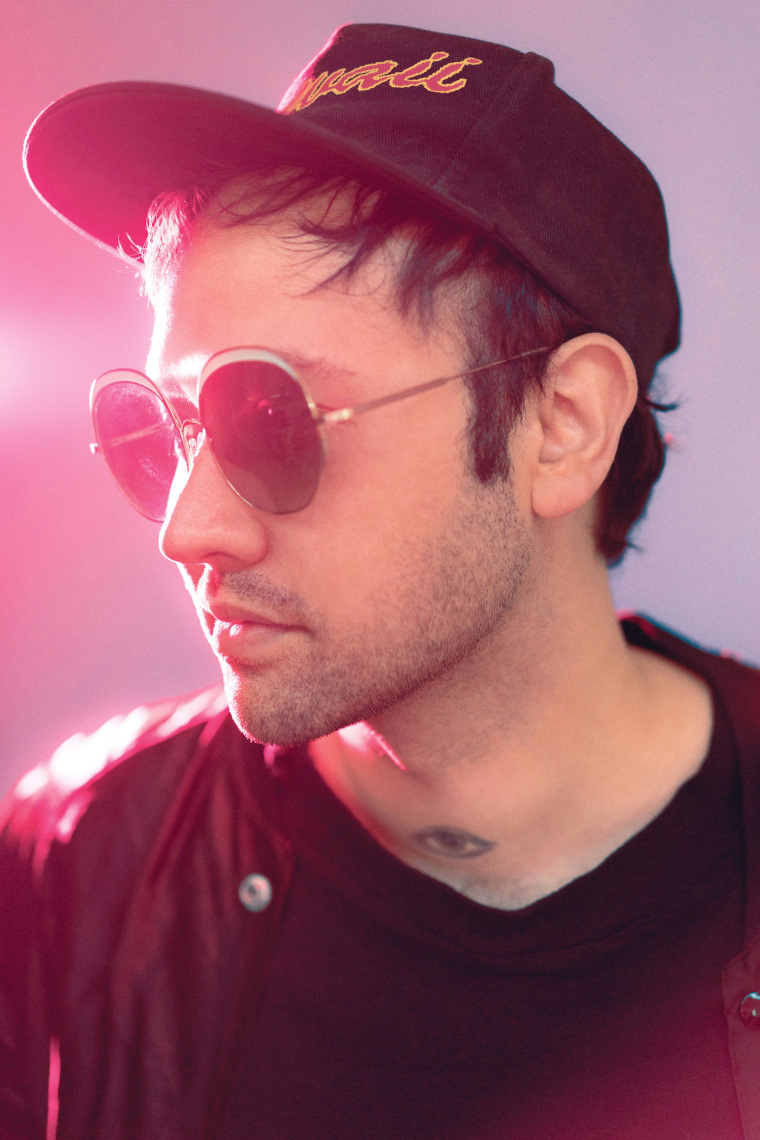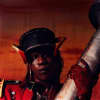 Ruban Nielson
Neil Krug
Ruban Nielson
Neil Krug
Over the years, Ruban Nielson has used his Unknown Mortal Orchestra alias to explore lo-fi funk, psychedelic R&B, the ins and outs of a polyamorous relationship, and more. It's always been a personal project, but his just-dropped new full-length, Sex & Food, feels weirdly more revealing, even though he's made it clear he's not interested in talking about the specific life events that inspired it.
But on songs with titles like "Everyone Acts Crazy Nowadays" and "Not In Love Just High" — the latter of which is hinged on alien vocals and a sort of breathy, late-’90s R&B-pop vibe — Nielson works hard to turn the simple, boring, and often disappointing ritual of "just getting by" into music that is rich and complex. Though it was written and recorded all over the world, Sex & Food is, at its core, an album that's deeply concerned with not being too deep. And it's better for it.
Nielson, a one-time punk rocker from New Zealand who has lived in Portland, Oregon for years, spoke about the record on a recent visit to New York. The full conversation, which you can read below, touches on using music as relief from chaos, the half-remembered childhood aesthetics that inspired him, and his inability to turn down a good challenge.
Do you like visiting New York?
Sometimes I think it's a bit too fast. I get tired really easy here. Because I grew up in New Zealand, the city kind of sucks the energy out of me. A lot of things that I like are here, but the energy destroys me. I'm too slow for this town. But a lot of culture that I follow comes from here, and New York is good for food. The thing that makes me happy is eating.
I mean, the album is called Sex & Food.
I was trying to think of something dumb to call it, a title that would convey the simplicity of the intent. A lot of times there's a projection of heaviness onto what I'm doing, and it always feels like a misrepresentation of how dumb and simple a person I am. We're living in a heavy time. I had this feeling that there might be a lot of ambitious, heavy political records coming out. This record is not political at all, to me. I'm surrounded by everything that's happening, but it's just about my feelings.
In your opinion, what's the function of a record like that?
I think a certain type of person comes to the UMO records to get relief from the madness. It's a place that feels human. I just make jams for people to listen to on the train on the way to work, or to get through their shift. I feel ultra-functional about each song. It's made specifically to make you feel better in real life. It's not a larger than life thing. I don't build drops for the dance floor. I don't make songs for a really fancy club situation. It's very much about headphones or listening in your living room. I imagine that I would have a shitty job if I didn't get to make music. I [made] an album for that version of myself. From my very person narrow taste, it's like the kind of record that I would need right now.
An artist once said to me, "If I'm not making music that I myself would obsess over, what's the point?"
I think that's the only way. You can't predict what anyone else is going to like. When I first started making music as Unknown Mortal Orchestra, I kind of gave up the idea that I was going to make music for anyone else. The music that I made when I was in that state of mind resonated more than anything I'd made in my life up to that point. I keep going back to that.
What was going on in your life, outside of music, when you were working on this record?
Because I'm grateful that I get to make music for a living, I got it in my head that what I owed everyone was everything. I felt like I overshared [about the last record]. I was trying to figure out how to deliver music without feeling like I've given too much. I kind of decided to not talk too much about my personal life, and not let the things that inspired the record become "the story," or whatever. Everything in my life is already on the record. It's embarrassing enough. A lot of times when I'm writing music I think I'm being really surreal or psychedelic, and then a year and a half later or whatever, I realize, Oh, it's just a shopping list of things that happened to me and the way I felt about it.
“A lot of times there’s a projection of heaviness onto what I’m doing, and it always feels like a misrepresentation of how dumb and simple of a person I am.”
From a technical lyric-writing standpoint, was there anything new about your approach?
I realized that a lot of the phrasing that I'm using came from my childhood — art from my childhood, music from my childhood. A lot of it is disco-based, R&B-based. A lot of modern R&B artists are influenced by trap music, so I was thinking of triplets a lot, which was a new thing. It chops of sentences in a different ways. It's kind of a challenge. I was trying it out.
Did those memories inform how the record actually sounds, too?
I'm in my late 30s. I grew up in a time when cassettes were the main way of listening to music. All the stuff I grew up on was kind of crunched, and so that’s always gonna sound good to me. I can't really escape that. Every aspect [of the album] is a subconscious memory of what I grew up with. Listening to the record, it's almost like I'm describing the mood of my childhood.
There’s a sleazy tape-deck rock & roll radio vibe to some of this record, particularly on the lead single, “American Guilt.”
I feel like everyone finally put rock in the ground. So now, it's obvious, it's part of my personality — that would be the thing that I want to do right now, to try to make an actual rock song, and have it work, to make something that isn't speaking to these old rock dudes talking shit on rap. All of that stuff is horrible — every time someone defends rock it sounds like the worst idea ever. But every time something is the worst idea ever, that's when I want to challenge myself.


